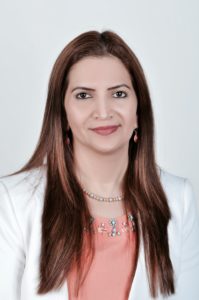This is the question thousands of women ask their doctors in the Gulf and around the World. For some years already, we have seen many fertility clinics open their doors. They are covering a very high demand of couples that for one reason or another cannot conceive. infertility
Infertility might be coming from the male, the female or both parts of the couple. Science has identified that age and stress are important factors, but they are not the only ones. There might be physical issues and environmental factors. Actually, in the Gulf region we tend to have very low vitamin D and high obesity. Both are considered important factors for infertility.
We asked Dr Monikaa Chawla from Fakih IVF what could be done to solve the infertility problem.
THE INTERVIEW: MONIKAA CHAWLA
INFERTILITY IN DUBAI
Dr Chawla, what is the incidence of infertility in the region?
The incidence of infertility is around one in every 5-6 couples in the UAE. This is more than the global average of 1 in 7. According to recent statistics from the region, the amount of women seeking treatment per year could nearly double from 5,975 in 2015 to 9,139 by 2030.
How long do you recommend couples to check a doctor if they don’t conceive naturally?
A couple who has been trying for a period of one year without luck must seek advice. This duration though does not apply to women who are more than 35 years old, who have been diagnosed with polycystic ovaries or endometriosis, who have history of operation in the abdomen or had infections which can compromise the tubes. These women must seek help early i.e. within six months of trying. For men, if they had history of infections in genitals, mumps, undescended testes, must get advice and a semen analysis done to diagnose any problems early.
WHAT CAN BE DONE?
What are the options nowadays if babies don’t come?
Reproductive medicine field has advanced so much. Nowadays, almost all hurdles in infertility can be bypassed by various techniques. There are simple treatments like boosting fertility with medications to produce more eggs and then timing the intercourse around ovulation or performing intrauterine insemination for minor male sperm factor problems.
In a woman with disturbed ovulation like polycystic ovaries, medicines can help in restoring it. For cases where tubes are blocked or the sperm has severe problems, we suggest IVF ICSI (Invitro fertilization). Since it produces excellent success rates in women less than 38 years of age.
The bottom-line is that a woman’s age is the most important factor contributing to the success of the treatment. There are cases where the basic tests like ovulation tests, tube tests and sperm tests are fine but conception does not happen (what we called “unexplained infertility”). Such cases usually produce good results with IVF ICSI.
For men who do not show any sperm in the ejaculate, surgical extraction of sperm (micro TESE) is possible in most cases. It will later be used to inseminate the eggs and achieve a pregnancy. PGD ( Preimplantation genetic diagnosis) can help in getting healthy babies in families having gene defects (thalassemia, etc.). PGD can detect this at the embryonic stage.

SPECIAL CASES
If there is low ovarian response or low sperm count. What are the potential solutions?
We can try to stimulate the ovaries (by tablets or injections). Followed by Intrauterine insemination or in Vitrofertilization to achieve pregnancy. Low ovarian reserve is related to age and cannot be reversed.
The message to the women is to start their reproductive career early in life as the fertility falls briskly after 35 years of age. Also, smoking, alcohol, chemotherapy can also lower the ovarian reserve. Obese women may have lower reserve compared to other women.
Low sperm count can be improved. Just stop smoking, alcohol, drugs of abuse or use of steroids used for bodybuilding. A healthy lifestyle can help increase the sperm count.
If conception does not happen and if sperm problem is mild, intrauterine insemination. If the sperm problem is severe, intracytoplasmic sperm injection (IVF ICSI) achieve good success rates.
Other countries allow egg donations. Do you think this will be happening in UAE?
This is not allowed in the UAE as per the current law.
HOW CAN WE ASSIST OUR BODIES SKIP INFERTILITY?
How can we preserve or increase our fertility?
Natural fertility in both men and women can be enhanced. How? By following a healthy lifestyle.. free of smoking, alcohol, shisha and steroids. Regular exercise and maintaining an ideal body weight helps in maximising fertility.
Women’s age is important. It is much easier to get pregnant when you are less than 30. And after 35 years, chances get slimmer. If a woman is delaying childbearing then an awareness of egg health and the technique of egg freezing can help preserve it. These eggs maintain the capacity to be fertilized up to five years later.
Similarly, if a man or woman is going for chemotherapy or radiotherapy, we recommend the freezing of eggs or sperm. As these treatments can easily damage the gametes.
 Dr. Monikaa Chawla is a Reproductive endocrinologist and fertility specialist with more than 20 years of experience.
Dr. Monikaa Chawla is a Reproductive endocrinologist and fertility specialist with more than 20 years of experience.
She completed her MD in 1998 and was awarded the membership of the Royal College of Obstetricians and Gynecologists (MRCOG and FRCOG).
In addition, Dr Chawla completed her postgraduate award in Assisted Reproduction from Warwick University, UK. Also, she is a Masters in Human Embryology and Biotechnology from IVI Valencia in Spain.











